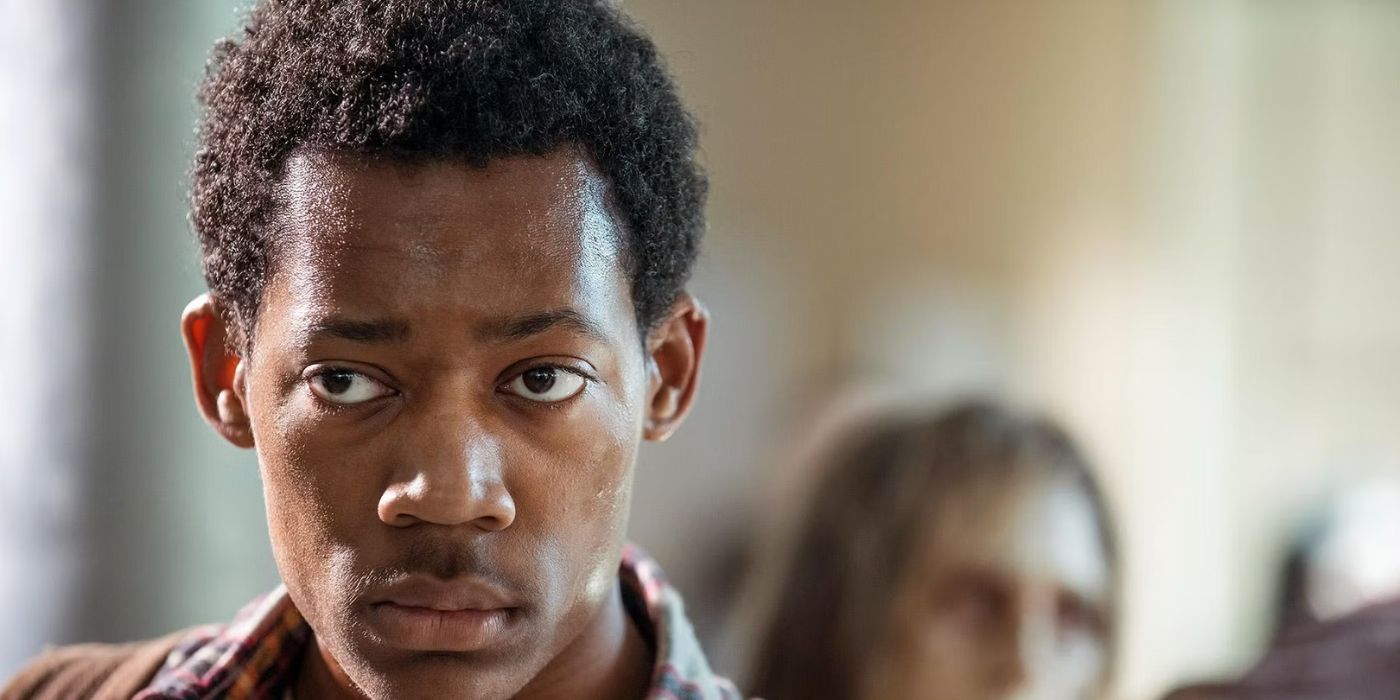
The existential apocalypse of a Turkish literature professor gets an oblique and chilling study in “The Things You Kill.” On its surface, this disquieting diptych about male anxiety has the feel of, say, an Asghar Farhadi movie, a moral dilemma urging forth a thriller plot. But that’s precisely the sort of bait-and-switch Iranian writer/director Alireza Khatami is operating on here, until his tense and nightmarish film starts to resemble more something like David Lynch’s “Lost Highway” as directed by Abbas Kiarostami. Khatami (“Terrestrial Verses”), who lives in Canada, relocated the setting from Iran to Turkey to evade censorship in his native country — a censorship of patriarchal violence that the film itself also rings upon like a warning bell of a bleak future.
“The Things You Kill” ends with the same enigmatic line — “kill the light” — spoken by two very different people. One is borne from a dream, the other a nightmare, and they form the beginning and end of an existential death sentence around the hapless Ali (Ekin Koç). He’s in his early 30s, handsome, and married to a beautiful, 10-years-younger veterinarian (Hazar Ergüçlü). But the cracks begin to form. Somewhere in a Turkish city, he teaches translated Western literature to a disaffected classroom, a course he’s mocked for by administrators and one about to be canceled next semester. His low sperm count keeps him from conceiving a child despite his wife’s desperate wish to do so, only reminding further that he is the problem, the common denominator of all his misfortune. He has a tense relationship with his father Hamit (Ercan Kesal), who looks at his son and sees only disappointment. “What did I do that Allah gave me such a son?” His mother, meanwhile, is a geriatric wreck who needs around-the-clock attention.
Like the compulsive twisting of a pencil into a sharpener, Khatami tightens the narrative rope to excruciating effect with a series of ominous foreshadowings. The plumbing seems to be busted everywhere, there’s a pistol hidden in a water tank, and a crucially placed mirror all but opens up like a portal, seemingly sucking Ali into it. In a distancing long take in no rush to zoom in — Khatami and cinematographer Bartosz Swiniarski sometimes work with lenses that go in and out of focus to suggest waking or coming to from a dream — Ali and his sisters Nesrin and Meriam gather around for the terrible news. Their mother was found dead, with Hamit off the property at the time of her fall.
 ‘The Things You Kill’Bartosz Świniarski
‘The Things You Kill’Bartosz ŚwiniarskiThe death, though, is suspicious because an autopsy report reveals she died of a hemorrhage caused by an unknown blunt-force trauma to the back of her head. But she fell face down? Hamit has a history of rage and abuse, leading Ali down a darkening path that may, strangely, end up jumpstarting his impotent life. In a society that favors a patriarchal breadwinner over one who can’t even sire a child, who can’t fulfill filial prophecy because of his own emotional stuntedness, Ali is an overall feckless man by society’s standards. But if he can sort out the death of his mother and choke out the chain of patriarchal violence, one he’s now primed to absorb, at the roots, maybe he can save himself.
While “The Things You Kill” dwells in specifically Muslim issues — the forced piousness that can lead to a sleepwalk of a life, the women who are pushed aside by society — Khatami is after a more universal effect here, challenging the notion that his story has to be a Muslim one by introducing Western filmmaking practices and allusions. Even while Khatami’s late beloved countryman Kiarostami remains a true north star.
Like a mirage, an enigmatic gardener (Erkan Kolçak Köstendil) enters the frame with a proposition Ali can’t refuse, or maybe willed into being himself. The gardener seems to already have a penchant for tall tales, with a notebook full of scribbles and an English-language paperback he’s reading. And are those Ali’s clothes he’s suddenly wearing? The Anatolian mountains, where Ali tends to a barren garden, provide a sinister backdrop from which anything, not just a vagabond dropped as if from the sky, can suddenly appear.
Here’s when “The Things You Kill” kicks into higher, insidious gear. After a sudden and brutal act of violence, the movie itself appears to be concussed, a key cast member swapped, and a version of Ali now inhabiting an alternate reality that’s very close to the movie’s first half, but everything’s just slightly off. Hence, the echoes of “Lost Highway,” where the character played by Bill Pullman in David Lynch’s eerie primer on male violence is body-swapped for Balthazar Getty in the second half. The comparisons to Abbas Kiarostami come in the self-aware formalism of “The Things You Kill.” A la Iranian director Kiarostami’s “Taste of Cherry” — a tradition of nonlinear filmmaking Khatami is far more invested in than his contemporary countrymen — it wouldn’t be a shock for the film to cut to its own director, holding a camera. This film is about the contagious power of storytelling — which includes lying and self-deception — and what a potentially lethal device it can be in the wrong or even right hands. And what are the wrong or right hands? Khatami doesn’t answer any of that. While the self-consciousness of the style threatens to dull the emotional impact of the story, Khatami here isn’t an especially emotional filmmaker. I would put him closer on the path to a horror director.
“The Things You Kill” is like a bad, sweat-breaking dream that leaves you dazed and feverish — and a black-hearted gaze into the poison patriarchy oozes into men’s veins just as much as women. Ali, like a male feminist who’s hip to that very system, thinks he’s got it all figured out. But Ali is laying the tracks, too, and what Khatami brilliantly does here is spike those tracks with landmines that implode all the way to that final, dying line: “Kill the light.” You can’t stop what’s coming, and what’s coming is worse than you thought.
Grade: A-
“The Things You Kill” premiered at the 2025 Sundance Film Festival. It is currently seeking U.S. distribution. Best Friend Forever is handling sales.
Want to stay up to date on IndieWire’s film reviews and critical thoughts? Subscribe here to our newly launched newsletter, In Review by David Ehrlich, in which our Chief Film Critic and Head Reviews Editor rounds up the best new reviews and streaming picks along with some exclusive musings — all only available to subscribers.

 6 days ago
12
6 days ago
12










 English (US) ·
English (US) ·